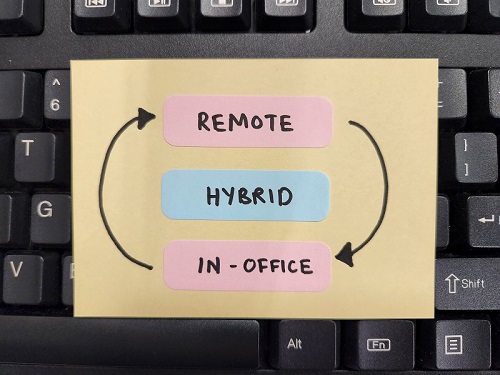The Rise of Hybrid Working and its Impact on IT Dependency

The workplace will change over the next ten years according to recent research by Gartner and one of the key points that stood out for me was how much technology is key to this evolution.
Hybrid cloud and data sovereignty are enablers for the workforce to become more connected to the workplace from any location, but that’s already happened due to the scramble to enable work from home during the pandemic.
During that time the rush to deploy remote working technology meant that things like security, data management and consideration of the future impact of what was happening were ignored for the sake of business continuity. That impact is now being realised as companies review their position today and the cost of the implementations from three years ago.
Not only of the technology but also of the workforce, as they now expect to work from home. I don’t think the adjustment has been fully made by the C-suite executives, as we start to see the call back to the office by major firms across the globe (even Zoom).
The consequences of the enforced work from home during the pandemic proved that technology always could deliver remote working en-mass and not just for the privileged few, but now they are considering if we should continue to do it – and there are many reasons for the recall.
Also, digital transformation (DT) is not just about migration to the cloud, it’s about integration and expansion of technology into all areas of a business, into all aspects of its operation to such a degree that it fundamentally shifts the way a company functions.
This means it’s more than just technology adoption, it’s also about restructuring business processes and culture, possibly at a fundamental level. Which is why so many DT projects fail. Technology is just one part of digital transformation. If the other parts fail in the transition, then they tend to be the reason the DT project fails, it’s not generally the fault of technology. However, that was before Chat-GPT arrived and with the ever-increasing advancement of AI in the workplace, this will have a much bigger impact on digital transformation than IT ever has.
Questions about resilience and data sovereignty remain unanswered i.e. who owns the data once it’s in the cloud and how easy is it to get back – for example how (on a public cloud) you’ll be able to create a genuinely sovereign cloud, with all the data storage and processing has to stay “in country” as well as systems and people.
Interesting to see Google’s latest effort to win cloud deals over larger rivals Amazon and Microsoft involves making it cheaper for clients to leave with their free network data transfer, often a profitable source of revenue for tech companies and a lock-in for clients to go elsewhere.
I work for Claritas Solutions, a Wetherby-based IT company and we pride ourselves on security, always being ethical, as well as offering the right solution for the client due to our independence.
So, in future, as the world of work changes, more companies will no doubt find efficiencies with AI assistance, digital transformation will become more seamless and businesses will have to be more security-conscious and for me, that can only be a positive thing.




